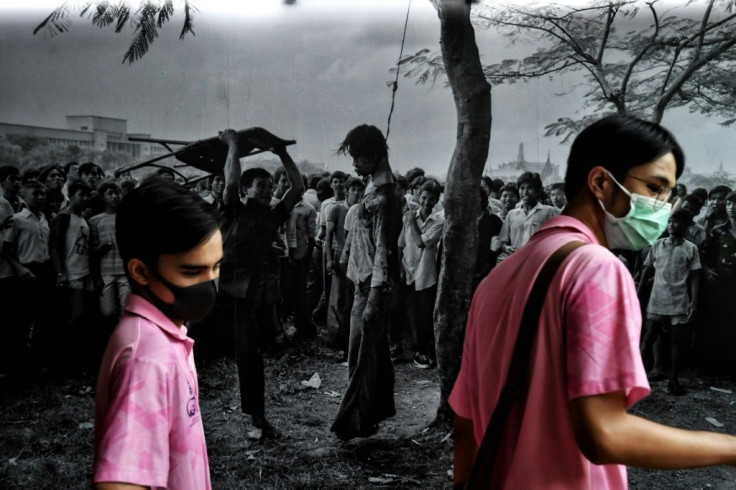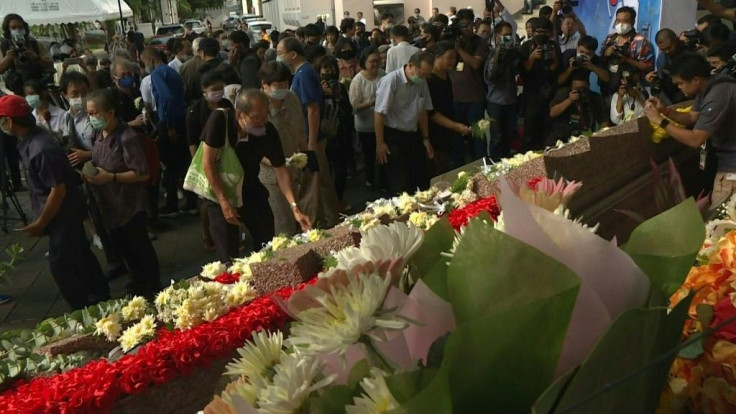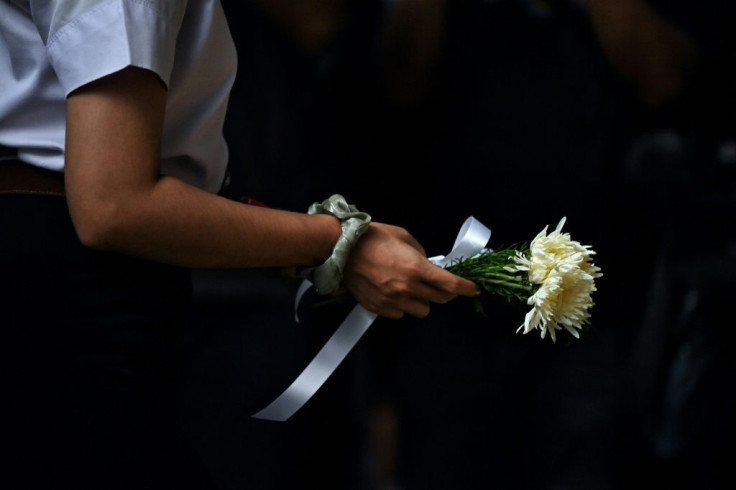Thai Protest Leaders, Massacre Survivors Mark Sombre Anniversary
Thai politicians and protest leaders laid floral wreaths Tuesday at a monument commemorating the anniversary of a student massacre more than 40 years ago, as survivors reflected on the younger generation's latest democracy push.
The October 6, 1976 killings, carried out by security forces and royalist militias, stand out for their brutality.

At least 46 student protesters were shot, beaten to death or hanged from trees as they rallied at Bangkok's Thammasat University against the return of a military dictator who was ousted from power just three years earlier.
Nobody has ever been held accountable for the bloodshed, which critics say is a reflection of an ongoing culture of impunity for the country's military.

Thailand is in the throes of a nascent pro-democracy movement, with massive demonstrations across the country demanding an overhaul of its military-aligned government and reforms to the monarchy.
"It's like history repeating itself... they were students who came out to protest demanding change in our society," said lawyer Anon Numpa, one of the most prominent faces of the movement, at the memorial Tuesday.
Opposition MP Rangsiman Rome pointed to sedition charges targeting Anon, as well as dozens of activists, as proof of the need for reform.

Representatives from the pro-establishment Democrat Party also attended.
"If every side understands the history, then we can solve our country's problems," former MP Tankhun Jittitsara said.
The current crop of activists have studied Thailand's history and are unafraid to discuss "the root cause" of the kingdom's problems, said Pheu Thai MP Sutham Saengpratoom, who was a student leader during the 1976 crackdown.
"My generation didn't dare to talk about the entire truth but these students are bold," he told AFP.
Survivor Jin Kammachon -- who saw his parents and girlfriend killed that day -- is heartened that today's students have been using a ballad he composed as a protest song.
And he has written a new song with the lyrics: "If we don't surrender, we will not be defeated."
© Copyright AFP {{Year}}. All rights reserved.





















